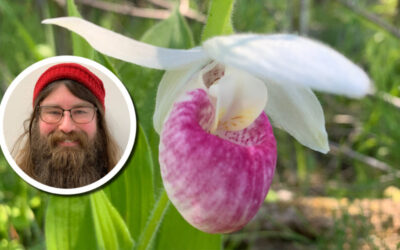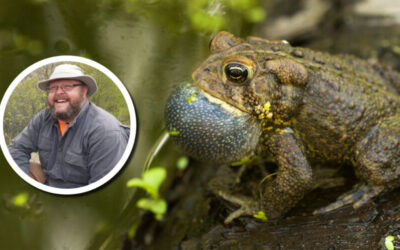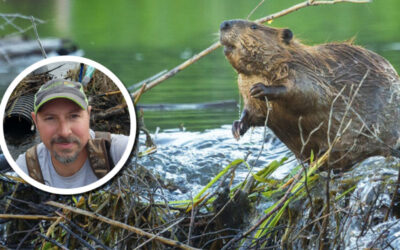Wetland Coffee Break
The Wetland Coffee Break series helps keep our community of wetland lovers connected and learning about wetlands throughout the year, from anywhere! Bring your coffee and learn about wetlands, the plants and animals that call them home, and the many natural benefits they provide to our communities. Sessions are held on Zoom and feature time for audience Q&A.
See below for a list of upcoming presentations and to register. Once you register, you’ll receive an automatic email including the URL link and password you’ll need to access the meeting. We record and post each presentation so you can watch any that you missed live. You’ll find links to these recordings below, and you can also find them on our Facebook page.
We are grateful to all of the presenters for sharing their knowledge and expertise and to everyone interested in learning more about wetlands! If you are interested in giving a Wetland Coffee Break presentation, or if you have a wetland topic you’d like to see covered, please contact Katie.Beilfuss@wisconsinwetlands.org.
We are now able to provide attendance verification to Wetland Coffee Break audience members who attend the live sessions and request this service. We created this mechanism in response to requests from members of the Wetland Coffee Break audience who would like to apply their Wetland Coffee Break learning to their continuing education or certification requirements. Learn more about how to receive attendance verification here.

Register for a Wetland Coffee Break
The Wetland Coffee Break is on winter break, back in 2026. Check back in later this winter for upcoming programs, and subscribe to our every-other-week Wetland News email to get our calendar of events, which includes Wetland Coffee Break episoded. Meanwhile, consider attending the 2026 Wetland Science Conference, happening Feb. 24-26 in Baraboo/Wisconsin Dells, for more great information about wetlands.
Watch previous presentations
Click “Older Entries” below to see more past presentations, or view our Google Sheet index of past presentations here.
Wetland Coffee Break: Investigating the relationship between showy ladyslipper and European skipper butterflies
While working on wetland delineations, environmental scientist Matt Knickelbine has been observing instances of showy lady slipper flowers being filled with dead, invasive European skipper butterflies.
Makak Aabajitoon Ganawendang Manoomin: Guiding wild rice conservation with Anishinaabe worldview
Learn more about a collaboration to develop a low-cost remote sensor to monitor environmental factors affecting manoomin (wild rice), and how it aims to complement tribal interests in wild rice restoration and managment.
Wetland Coffee Break: Aquatic habitat management for amphibians and reptiles in Wisconsin
Learn from professor Josh Kapfer some of the more general concepts and approaches that natural resource managers can consider when developing or enacting strategies for amphibians and reptiles in aquatic habitats.
Wetland Coffee Break: Coexisting with beavers to increase wetland functionality and support biodiversity
Restoration ecologist Clay Frazer will discuss beaver behavior and how having beavers on the landscape can improve water quality, mitigate flooding, support biodiversity, and increase wetland functionality.
Wetland Coffee Break: Bioacoustic evidence that bats benefit from beaver ponds
Wisconsin’s beaver management policies are primarily aimed at benefiting the state’s trout populations. But what if beaver ponds are ideal habitats for threatened and endangered species like the bats of Wisconsin?
Wetland Coffee Break: Wetland monitoring and assessment 101
Ecologist Sally Jarosz provides an introduction to the wetland monitoring and assessment methodologies employed by the Wisconsin Department of Natural Resources.






